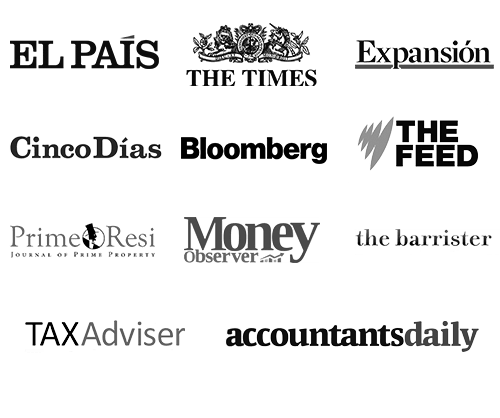Setting up a business in the UK. The UK has long been one of the best places in the world for setting up a business. Company formation and registration are relatively cheap and easy and the UK’s tax structure means in the early, less-productive years a business will not be heavily taxed.
It is important to ensure that a robust legal framework is in place from the start so that the company is seen to be compliant as well as having the right documentation in place to govern internal issues.
The following points will help you make sure that your new business has a good start:
- Selecting the right business structure
- Understanding what taxes will be payable
- Setting up and registering the business
- Regulatory compliance
- Observing the correct procedure when taking on employees
Selecting the right business structure
One of the first decisions to be made is which business structure to choose. You can run a business on your own as a sole trader or choose from one of the three other main types of business set-up:
Partnership
Where two or more people agree to work together in a business, they have the option to form a partnership. A partnership is not incorporated, the partners are self-employed and they are liable for any losses or negligence that occur.
If you are setting up a partnership, it is essential to have a partnership agreement in place which will include details of how profits and losses will be shared, who will be liable for any negligence, how the partnership can be ended and how disputes will be resolved.
Limited liability partnership
A limited liability partnership restricts the potential amount of any losses to the sum that has been invested in the business. The partnership will still need an agreement in place and by law must be registered at Companies House and with HM Revenue and Customs.
Limited company
A limited company has its own legal entity which is separate from its directors and shareholders. This means that the liability of directors does not extend to their personal assets. A company can be limited by guarantee or by shares.
Company details and accounts need to be filed at Companies House and accounts must be sent to HM Revenue and Customs. Corporation Tax is payable on the profits of the company, which can then be distributed to the shareholders as dividend payments. There is currently a tax allowance on dividends, meaning no tax is payable on the first £2,000 of dividend income.
The company will be owned by its shareholders and a comprehensive shareholders’ agreement should be drawn up, covering their rights and obligations. You will need to decide what powers to give your shareholders and how many shares they will each be issued.
Setting up a holding company in the UK
The UK is a competitive country in which to set up a holding company for one or more subsidiaries so that a corporate group is formed.
Shares held by a UK holding company are exempt from tax on the sale, provided they have been held for a year or more and the company holds a minimum of 10 percent of the share capital in the company being sold and is also part of a trading group.
Dividends received by the UK parent company are generally not liable for tax, nor is there any withholding tax payable on dividends.
Transactions between group companies in different countries should be conducted on an independent basis, in the same way as transactions between unrelated businesses.
Understanding what taxes will be payable
As well as corporation tax payable on company profits, tax and National Insurance contributions are payable on the income of those considered resident in the UK.
The current Corporation Tax rate up to tax year ending March 2023 is 19%. On the Financial Year beginning 1 April 2023, the tax rate will be increased to 25% applying to profits over £250,000. As stated in the HMRC webpage, a small profits rate (SPR) will also be introduced for companies with profits of £50,000 or less so that they will continue to pay Corporation Tax at 19%. Companies with profits between £50,000 and £250,000 will pay tax at the main rate reduced by a marginal relief providing a gradual increase in the effective Corporation Tax rate.
Personal income tax rates are as follows, as at the tax year commencing 6 April 2021
Band Taxable income Tax rate
- Personal Allowance Up to £12,570 0%
- Basic rate £12,571 to £50,270 20%
- Higher rate £50,271 to £150,000 40%
- Additional rate over £150,000 45%
Businesses making more than £85,000 must also register for VAT, which is payable at the rate of 20 per cent on most goods and services that a business supplies.
Setting up and registering a company
You will need to decide on a name for your company, which must be different to any other company name currently in use, and also choose a registered office. This is the address that will appear on official paperwork and where Companies House will send correspondence.
You will also need to decide on your company personnel, which will be directors, a company secretary and shareholders.
The company should be incorporated and registered at Companies House, which will issue it with its own unique company number. Accounts will need to be submitted to Companies House each year along with details of any change in key personnel and shareholders.
A company is also required to keep registers of members, directors, secretaries, directors’ meetings, resolutions and financial matters such as allotment of shares, borrowings and share transfers.
Regulatory compliance
As a business, you will be required to comply with several legal rules, including reporting, registration, employer obligations, health and safety legislation, data protection and insurance.
If you have set up a company, the directors will be bound to carry out directors’ duties in compliance with the Companies Act 2006, sections 171-177.
This includes acting within their powers, promoting the success of the company, exercising independent judgment, reasonable care, skill and diligence, avoiding conflicts of interest, not accepting benefits from third parties and declaring interests in proposed transactions.
It is also important to appoint accountants and nominate a company secretary to ensure compliance.
Taking on employees
Employees can be given share options in a business and must usually be provided with a workplace pension. It is important to have comprehensive employment contracts in place governing your relationship with your employees.
Employees will need to be paid at least the national minimum wage and be entitled to work in the UK. You will need to operate a PAYE system to collect tax and National Insurance from your employees on behalf of the tax authorities.
As an employer, you will need employers’ liability insurance. You will also need to register as an employer with HM Revenue and Customs.
Setting up a business in the UK. By Claudio Rodríguez, Tax Counsel at Del Canto Chambers. European Lawyer and Spanish Abogado
Contact Us
Del Canto Chambers is a leading London Chambers specialising in commercial law and tax, both domestic and international.
We can offer you extensive advice and guidance in putting the right legal structure in place for your new business. Our legal experts can work with you throughout the life of your enterprise, ensuring that it has a sound basis and that all compliance issues are properly dealt with.
To make a no-obligation enquiry, please either call us now on:
+44 2070 430648 or Make An Online Enquiry.
We will come back to you within 24 hours, and we will be delighted to help you.





